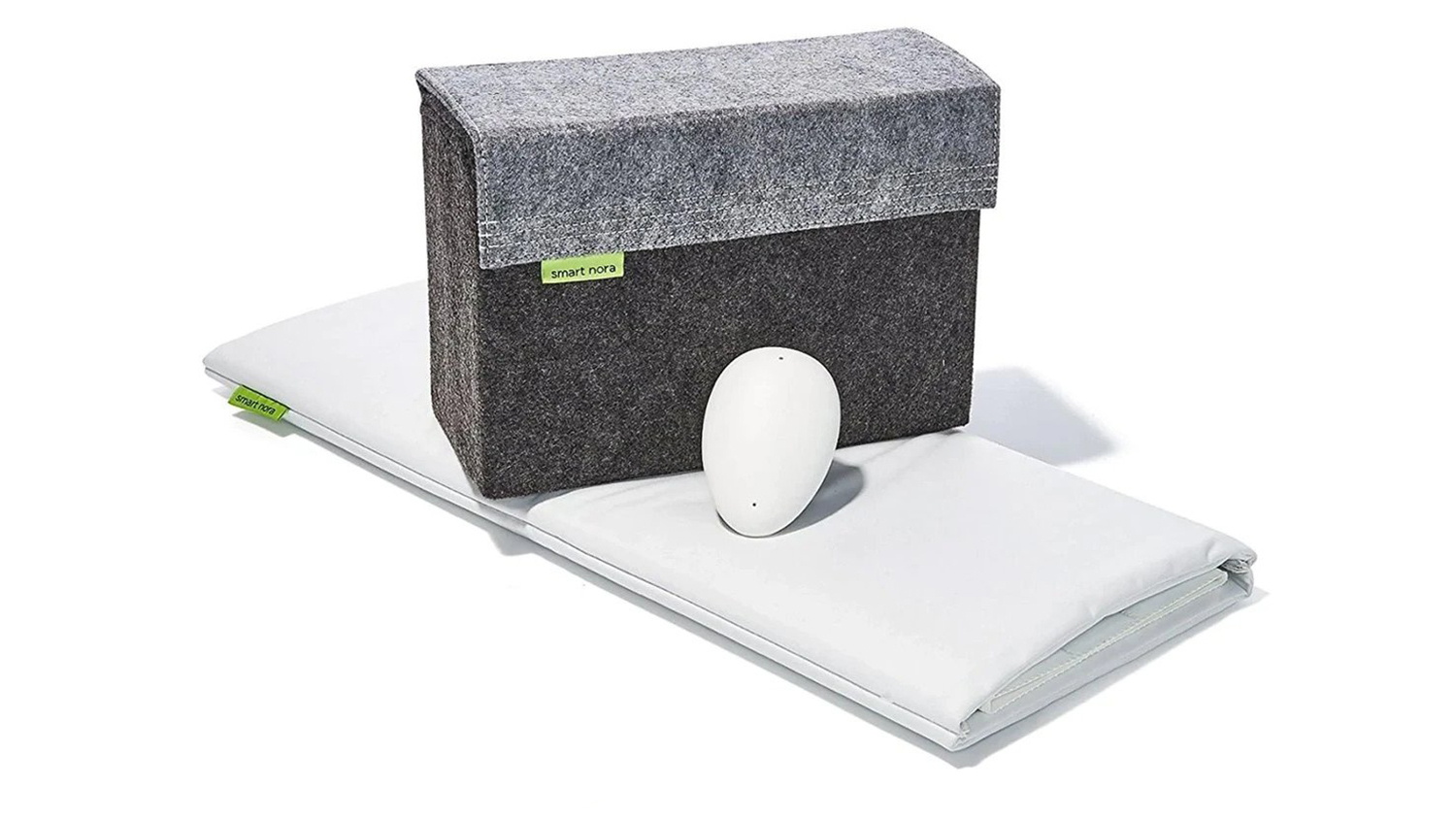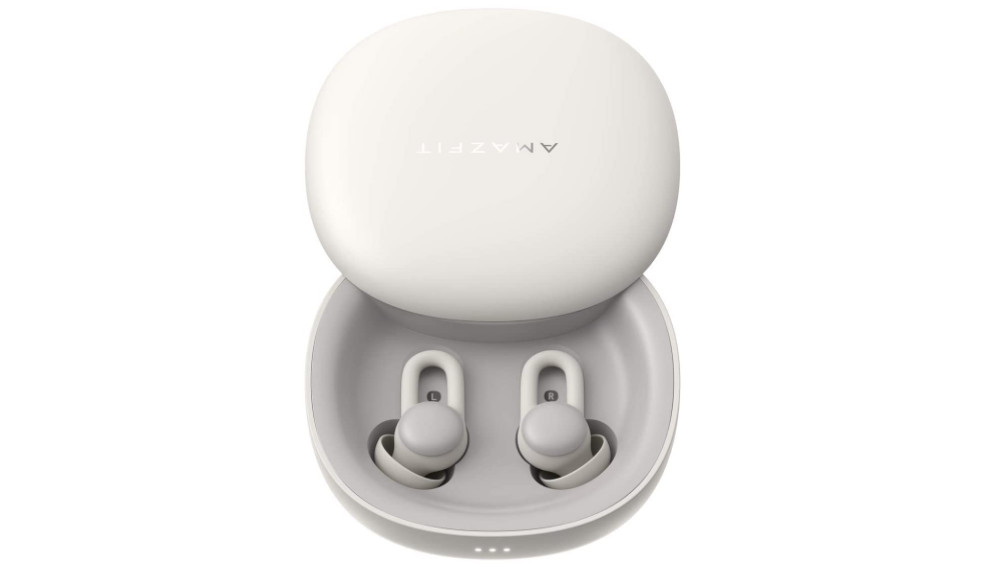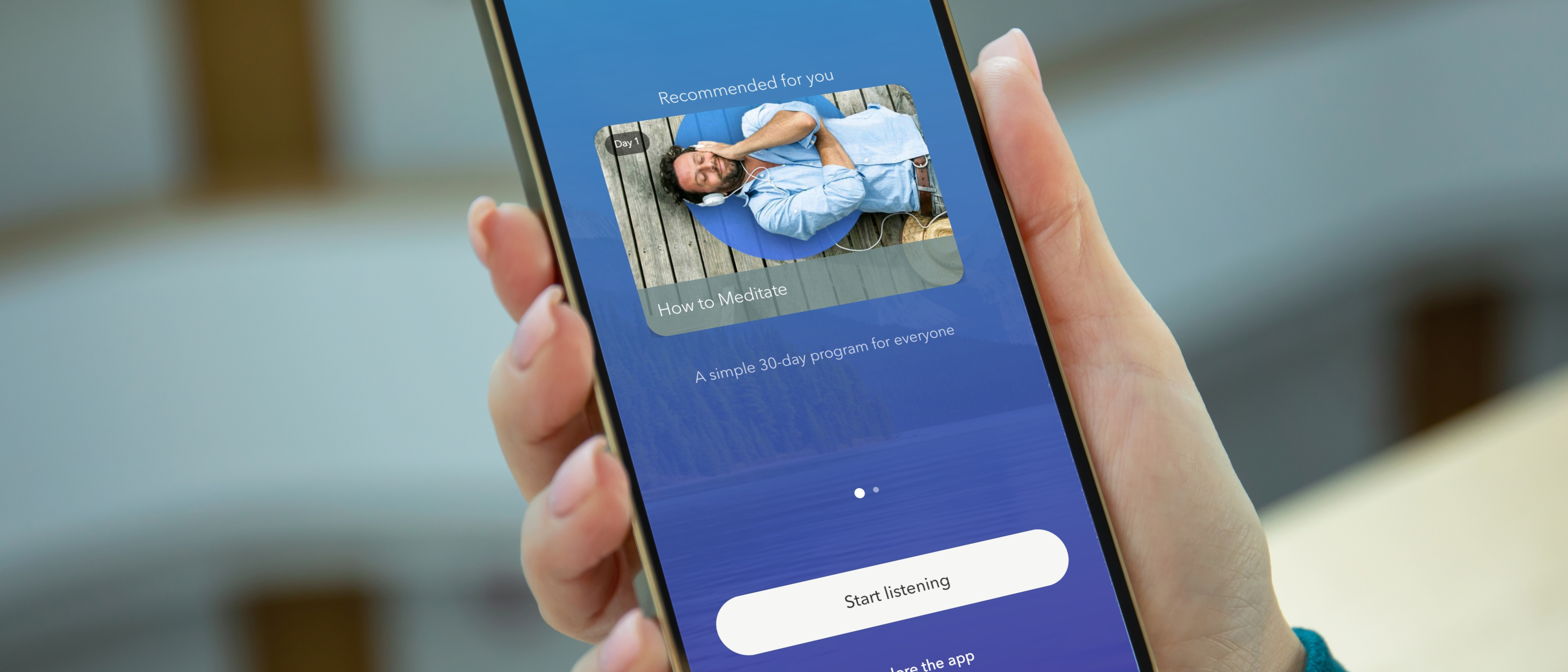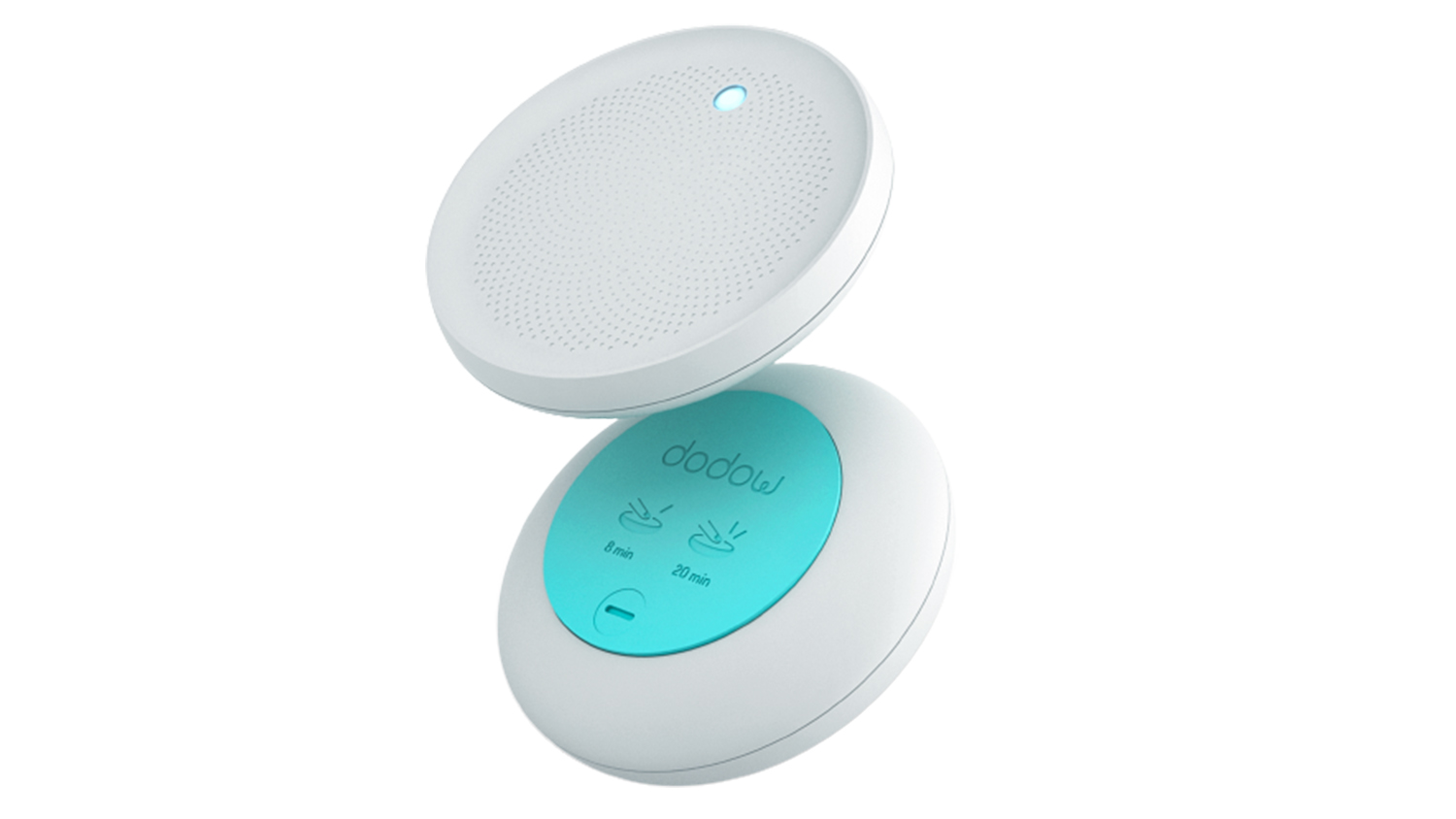How to sleep better: 5 gadgets to tackle your biggest sleep problems
These gadgets and apps can help you fall asleep easier, faster and for longer

When you sleep well at night you feel happier, energized and more productive the next day. But if your sleep takes a nose-dive it can affect your mood, energy levels and overall wellbeing.
So if you’re dealing with sub-par slumber and want to know how to sleep better, there are some key gadgets and apps that can help. Whether that’s helping to reduce your snoring, to fall asleep faster, or to block out external sounds that keep waking you up.
Remember though, even the best sleep gadgets are no substitute for expert help, so if you’re concerned about any aspect of your slumber, speak to your doctor or a sleep specialist as they are qualified to help you.
Sleep tech for snorers: Smart Nora
Snoring is a common sleep problem that affects roughly 90 million Americans and around 15 million Brits, with men more likely to snore than women. According to the British Snoring Association, snoring is a sound made by ‘vibrations of the soft palate and other tissues of the mouth, nose and throat,’ and is ‘caused by a partial blockage of the upper airway’.
There are plenty of products that claim to reduce snoring, and these range from basic nasal strips to wedge pillows that keep you off your back during sleep (the worst position for snorers).

One of the most widely known snoring devices is the Smart Nora, a wire-free system that turns your ordinary bed pillow into an anti-snore pillow. There are three parts to it: a pebble-shaped device that sits on your bedside table, listening for the early signs of snoring; a pillow insert that goes inside your pillow, inflating and deflating as needed; and a base unit that silently pumps air into the pillow insert.
When the Smart Nora hears those early sounds of snoring, the pebble (the command centre) tells the base unit to pump air into the insert, causing your own pillow to gently rise and tilt your head forward. According to Smart Nora, ‘This movement stimulates the throat muscles, allowing for natural breathing to resume.’
Get daily insight, inspiration and deals in your inbox
Sign up for breaking news, reviews, opinion, top tech deals, and more.
Research conducted by SleepScoreLabs (based on over 500 nights of collected data) shows that snorers reported a 20% increase in their ability to sleep through the night. Crucially for bed sharers, their partners experienced a 30% reduction in sleep disruption caused by snoring.
Want to try the device for yourself? It’s priced from $359 at Smart Nora (about £280) and comes with a 30-night money back guarantee.
- Nutritionist reveals the foods that help you sleep well and what to avoid
- I tried the 4 7 8 sleep method to see if it does help you fall asleep faster
Sleep tech for light sleepers: Amazfit Zenbuds
There’s nothing worse than finally drifting off to sleep, only to be woken by the sound of a car alarm, your neighbour slamming their front door, or birds chirping at the crack of dawn. Light sleepers wake up at the slightest sound, leading to broken shut-eye and a rolling sleep debt.
What’s the solution? If you’ve tried normal earplugs but found them too uncomfortable or not powerful enough to block out external noises, then it’s time for something a little more heavy duty. Step forward Amazfit Zenbuds, our top pick of the best sleep earplugs around.

We rated these earplugs a solid 4.5 out of 5 stars, praising their ability to mask sleep-disturbing sounds such as snoring, traffic and noisy neighbours.
The Amazfit Zenbuds are small, light and comfy to wear, even for side sleepers, and while you can’t stream your own music through them, they do play some soothing sleep sounds (available via the Amazfit app) to mask noises further and help you drift off.
They also handle some sleep tracker duties, and don’t charge the earth for the privilege either. You can pick them up for $149.99 / £119 at Amazon.
Sleep tech for insomniacs: Calm sleep app
Insomnia is a tricky issue and comes in many different forms. If you have trouble falling asleep, experts refer to this as sleep onset insomnia. Wake up frequently in the night and take ages to fall back asleep? This is known as sleep maintenance insomnia.
Treatment depends on your insomnia and how acute or chronic it is, but many sleep specialists agree that the more relaxed you are going to bed, and the calmer your Autonomic Nervous System, the better your chances of falling asleep.

There are plenty of free rhythmic breathing techniques you can use to help you relax for sleep. These include the Military Sleep Method and the 4 7 8 Sleep Method, but if you respond better to guided sleep meditations you’ll love the Calm sleep app. It’s packed with relaxing head to toe body scans, deep sleep meditations and bedtime stories for adults.
In our Calm app review, we explain how it places a big focus on mental wellness, which has a direct impact on how well you sleep at night. Try it for yourself with a free seven-day trial at Calm. A year’s subscription is priced at $69.99 / £28.99 per year, or $399.99 / £299.99 for life, and Calm is available for both iOS and Android.
Sleep tech for frequent wakers: Dodow
Remember what we said above about sleep maintenance insomnia? This could be used to describe frequent waking, but it depends on the reason why you keep waking up. If it’s because of noise, check out the Amazfit Zenbuds above. If it’s because you’re too hot, open a window then check out the last gadget below. Frequent weeing at night is called Nocturia and is a separate issue.
So what we’re dealing with now is frequent waking due to another cause, such as stress or anxiety. While the Calm app can definitely help you here too, a better sleep device for your needs is the Dodow, a disc-shaped gadget that focuses on getting you to relax.
It’s designed to help insomniacs fall asleep in eight minutes, and is inspired by various studies of an emotion management tool called cardiac coherence. This tool, by the way, is used by fighter jet pilots to calm and rebalance their Autonomic Nervous System.

Once activated, the Dodow projects a dim blue light onto your ceiling. Your job is to then breathe in time with the light, inhaling when it expands and exhaling with it detracts. It encourages you to breathe six times per minute, in a similar way to pranayama breathing (deep yogic breathing). The upshot? To help you produce that all-important relaxation response so that, with regular practice, you begin falling asleep easier and faster.
It’s especially good for helping you to get back to sleep quickly if you wake up in the middle of the night. Use it before your brain kicks into gear and starts running you through your next day’s to-do list. The Dodow is available from Amazon priced $59 / £49.90.
Sleep tech for hot sleepers: Simba Hybrid Duvet
Feeling too hot to sleep isn’t just a summer problem - for people with hot flashes, such as during menopause, pregnancy and their period - and for people with night sweats, hot sleeping is a one-way ticket to disrupted sleep.
If you find yourself waking up constantly because you’re too warm, so you throw off the covers one minute, then you’re too cold so you pull them back on the next, you might benefit with a temperature-regulating duvet. And few are more high-tech than the Simba Hybrid Duvet, designed with space-inspired Stratos Active fabric technology to dissipate heat.
It costs from £139 at Simba (about $180), and uses astronaut-esque phase change material to absorb then store heat, taking it away from you when you’re hot, then releasing it when you get cold. Who said you can’t have the best of both worlds?
Read more:
- The best mattress for all sleep styles
- The best mattress toppers for every budget
This article is part of TechRadar's Sleep Awareness Week 2022 (running from Sunday 13 to Saturday 19 March), a week-long celebration of all things slumber. We'll be bringing you proven techniques and tips to help you sleep better, and have rounded-up all the top-rated tech to transform your sleep.

Claire is a Sleep Editor and Certified Sleep Science Coach who covers all things related to slumber, and is the go-to person for getting great product recommendations for better sleep. As an expert mattress reviewer, Claire has tested memory foam and hybrid mattresses from a range of top-rated brands, and has extensive experience of testing bedding too. Claire regularly speaks to certified sleep specialists, such as chartered psychologists and doctors of sleep medicine, to stay on top of the research and techniques that can help you enjoy better quality sleep, and she speaks with industry specialists about the latest mattress trends and new releases. Before delving into the world of sleep, Claire was Health & Wellness Editor at Top Ten Reviews, and before that a Senior Content Editor at T3. Having suffered with insomnia for years, Claire knows how much of a difference a good night's sleep can make and is passionate about helping others to sleep better too.